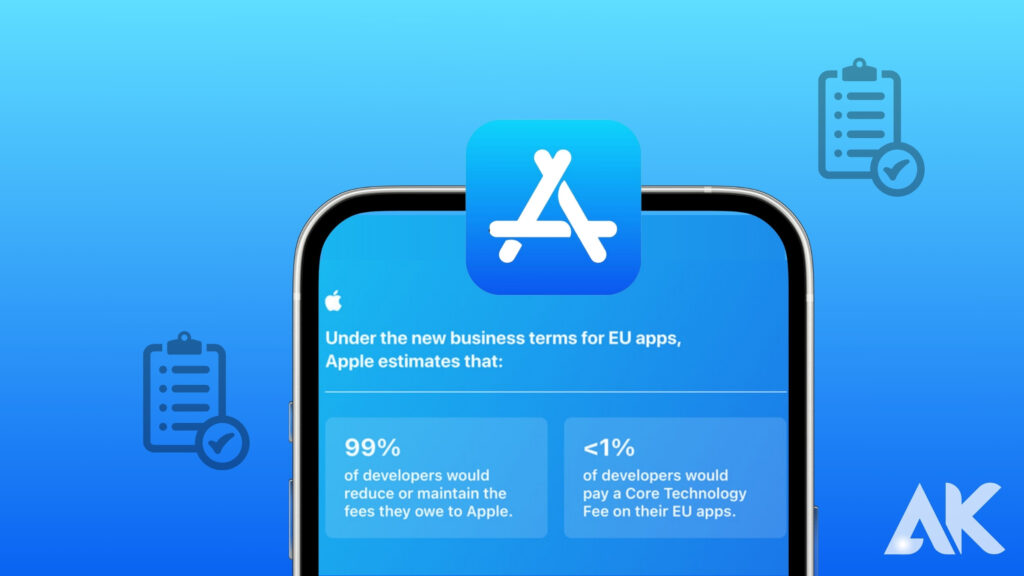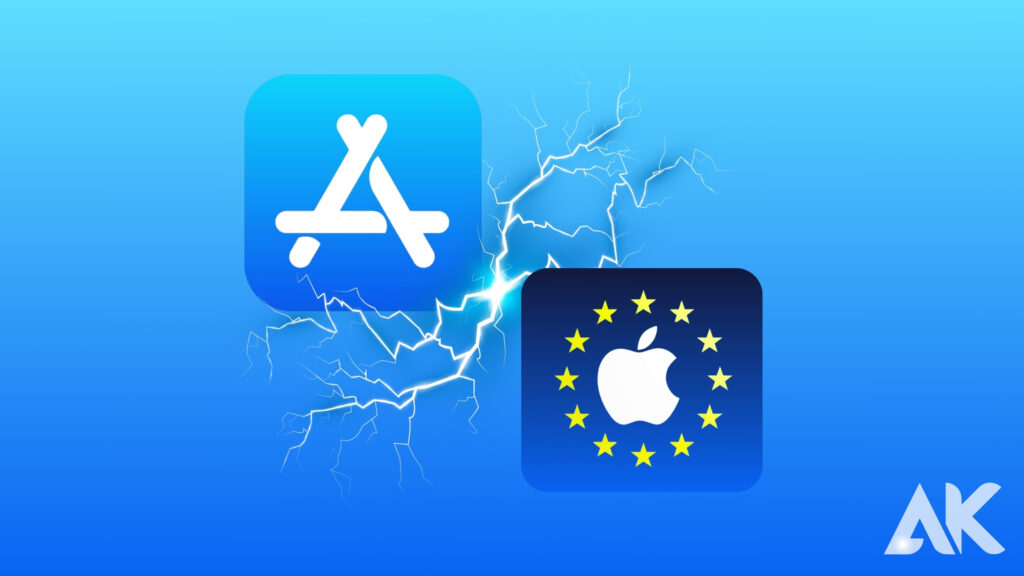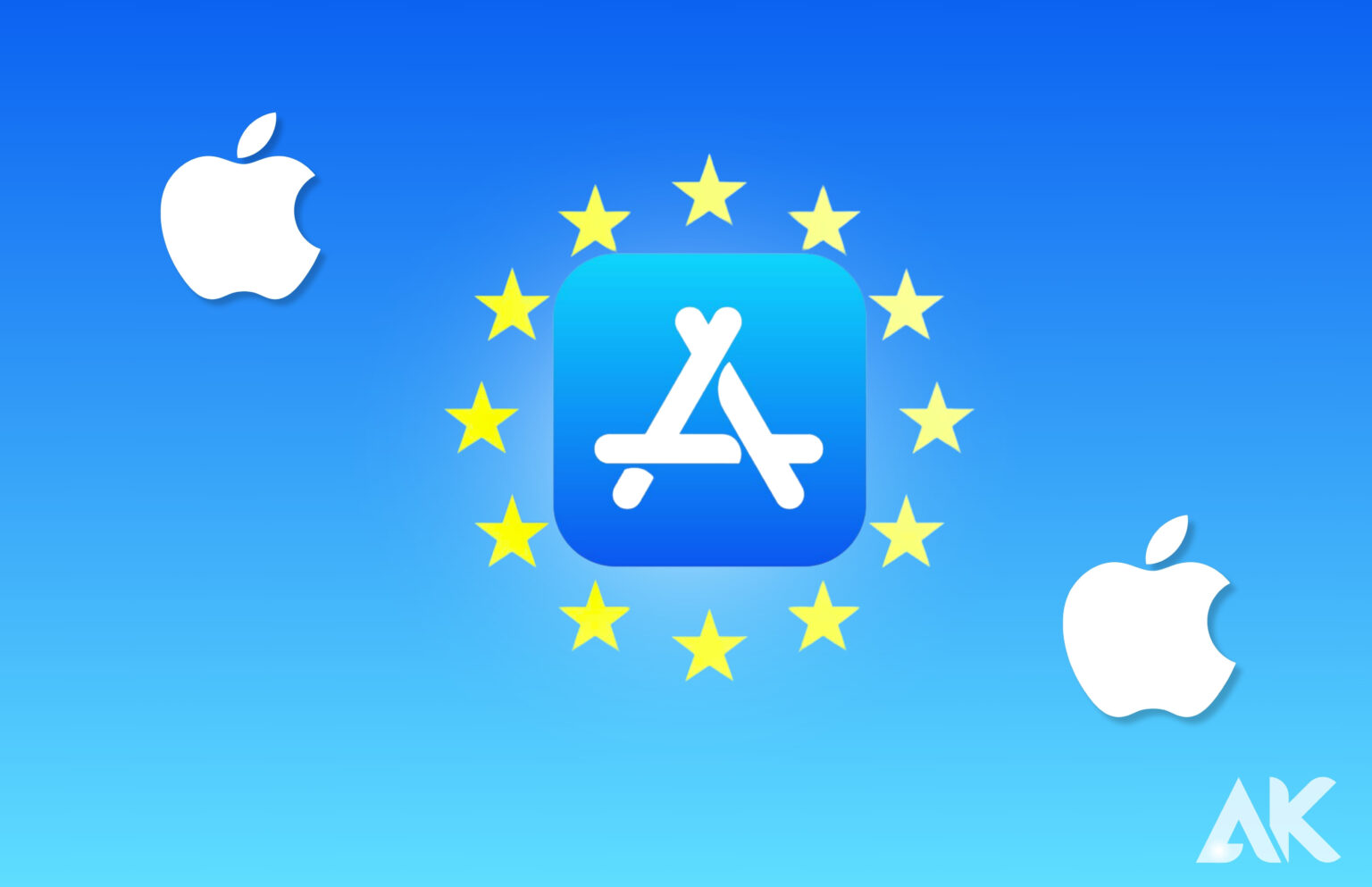Welcome to a detailed exploration of the latest developments in the digital landscape – “Apple’s EU App Store Changes: A Comprehensive Explanation in 2024.” In the ever-evolving tech industry, Apple’s continuous adaptations to the European Union’s app store policies have sparked significant interest and discussion. As we delve into the intricacies of these changes, this comprehensive guide aims to provide you with an in-depth understanding of the modifications implemented by Apple in the year 2024. Join us on this journey as we unravel the nuances, implications, and significance of Apple’s adjustments to its App Store within the European Union, offering you valuable insights into the evolving dynamics of app distribution and usage in this digital era.
App Store: Apple’s EU App Store Changes
The App Store, one of the largest digital marketplaces in the world, is undergoing notable changes in the European Union (EU). These changes aim to create a fairer and more transparent environment for both developers and users. With increased scrutiny from EU regulators, Apple has implemented a series of modifications to its guidelines, review process, commission structure, revenue sharing, search algorithm, user privacy, in-app purchases, subscription policies, and appeals process.

One significant update revolves around the App Store guidelines. Apple has made them more explicit and easier to understand, providing developers with clearer instructions on what is allowed and what is not. This move increases transparency and helps developers better navigate the often complex and evolving landscape of app development. Additionally, the review process has become more efficient, reducing the time it takes for developers to get their apps approved or rejected. However, the increased efficiency also comes with stricter scrutiny, ensuring that apps comply with the updated guidelines in a more consistent manner.
App Store Guidelines: Understanding the Modifications
One crucial aspect of the App Store experience is understanding the modifications made to the guidelines. These changes have a direct impact on developers, as they must adhere to the updated rules and regulations to ensure their apps are compliant and accessible to users. By understanding the modifications, developers can stay ahead of the curve and avoid potential pitfalls that may arise from non-compliance.

One notable modification in the App Store guidelines revolves around user privacy and data protection. With increasing concerns about user information, the EU has introduced stricter regulations to safeguard personal data. These modifications require developers to be more transparent about the data they collect, how it is used, and provide users with more control over their privacy settings. By ensuring compliance with these guidelines, app developers can build trust with their users and demonstrate their commitment to protecting user privacy.
App Store Review Process: What’s New in the EU
The EU has implemented significant changes to the App Store review process, aiming to provide more transparency and fairness. One notable update is the introduction of mandatory explanations for app rejections. Developers will now receive detailed information about why their app was rejected, allowing them to address the issues effectively. This change aims to create a more collaborative environment between developers and Apple, ensuring developers have a clearer understanding of the review process and can make necessary improvements to meet the guidelines.

Another key modification in the EU review process is the opportunity for developers to appeal a rejection. In the past, rejected apps had limited recourse, but with the new EU regulations, developers have the right to challenge the decision. This appeals process allows for a fair reassessment of rejected apps, ensuring that any potential mistakes or misunderstandings can be rectified. By providing a means for developers to dispute a rejection, the EU is striving to create a more balanced and inclusive ecosystem in the App Store.
App Store Commission Structure: A Breakdown of Updates
When it comes to app developers and the financial aspects of selling their products on the App Store, understanding the commission structure is crucial. The recent updates in the European Union have brought forward several changes in how the App Store commission works. These modifications aim to create a fairer and more balanced marketplace for developers and consumers alike.

One of the key updates in the commission structure revolves around a reduction in fees for smaller businesses. App developers who earn less than one million dollars in annual revenue can benefit from a reduced commission rate of 15% instead of the standard 30%. This change aims to support and incentivize independent developers and startups, allowing them to invest more in their apps and services. While larger developers may not experience immediate changes in their fees, the reduced commission rate for smaller businesses has the potential to encourage innovation and competition in the app market. However, it is important to note that this reduction applies only to eligible developers based in the European Union and is subject to certain criteria and conditions.
App Store Revenue Sharing: Exploring the EU Alterations
App Store revenue sharing has been the subject of much discussion and scrutiny in recent times. With the introduction of new regulations in the European Union (EU), the landscape of revenue sharing within the App Store has undergone significant alterations. Developers and consumers alike are eager to explore the implications of these changes and how they will impact the revenue distribution model.
One of the key aspects of the EU alterations is the requirement for greater transparency and fairness in revenue sharing. The EU regulations emphasize the need for clear and understandable terms regarding the distribution of revenue between Apple and developers. This includes providing detailed information on the specific percentage of revenue that developers are entitled to receive from their app sales or in-app purchases. By striving for greater transparency, the EU aims to ensure a fair and balanced revenue sharing ecosystem that benefits both parties involved.
App Store Search Algorithm: Impact of the EU Regulations
The EU regulations have not only brought changes to the App Store guidelines and commission structure but have also impacted the search algorithm used within the platform. With the goal of promoting fairness and competition, the algorithm now takes into account additional factors to improve the visibility of apps. App developers need to ensure their apps meet the new requirements to achieve higher search rankings and reach their target audience effectively.
One significant factor incorporated into the search algorithm is user ratings and reviews. The EU regulations emphasize the importance of user feedback, and as a result, app ratings now play a more influential role in determining search results. Apps with higher ratings and positive reviews are more likely to appear at the top of search lists, making it vital for developers to prioritize user satisfaction and engage in effective customer support. Additionally, the relevancy of an app’s description, metadata, and keywords is also given increased importance in the updated search algorithm, aiming to provide users with more accurate search results and enhance their app discovery experience in the EU marketplace.
App Store User Privacy: Enhanced Protection in the EU
App Store user privacy has become a priority in the European Union (EU) with enhanced protection measures being implemented. These changes aim to provide users with greater control over their personal information and ensure that app developers adhere to strict guidelines.
One key aspect of the enhanced privacy measures is the requirement for developers to obtain explicit consent from users before accessing their data. This includes not only personal information such as name and email address, but also more sensitive data such as location or health information. By obtaining explicit consent, users are empowered to make informed decisions about which apps can access their data, promoting a higher level of transparency and control over their privacy. Additionally, the enhanced protection measures also require developers to clearly disclose how user data will be used and provide mechanisms for users to easily manage their privacy settings.
App Store In-App Purchases: Changes and Implications
In-app purchases have been a major source of revenue for app developers, and the recent changes in the EU have brought about some notable modifications in this area. One of the key updates is the requirement for greater transparency in pricing and subscription terms. App developers are now required to clearly display the price and recurring charges for in-app purchases, ensuring that users are fully aware of the costs involved before making a purchase. This change aims to enhance consumer protection and prevent any surprise charges that may arise from in-app purchases.
Another significant implication of the EU changes is the introduction of stricter rules regarding the use of in-app purchase mechanisms. Developers must now ensure that in-app purchases are not misleading, and that they do not exploit vulnerable users, such as children. This includes prohibiting practices such as enticing users into making purchases through deceptive tactics or making it difficult to cancel or unsubscribe from recurring charges. With these changes, the EU aims to create a fair and transparent environment for in-app purchases, ensuring that users are well-informed and protected from potential exploitation or confusion.
App Store Subscription Policies: Updates for EU Users
The App Store Subscription Policies have undergone some significant updates specifically tailored for EU users. These changes aim to provide a more transparent and user-friendly experience for subscription-based apps. One of the key modifications includes clearer information about the duration and pricing of subscriptions, ensuring that users have a better understanding of what they are signing up for. Additionally, the App Store now requires developers to provide a simplified and hassle-free cancellation process, allowing users to easily manage their subscriptions within the app itself. These updates are designed to enhance consumer rights and offer a more seamless subscription experience for EU App Store users.
App Store Appeals Process: EU-specific Considerations
App Store appeals process for EU-specific considerations has undergone significant updates to ensure a fair and transparent resolution for developers and users alike. One key aspect of the new guidelines is the emphasis on providing clearer instructions and explanations when an app is rejected or removed from the App Store. Developers can now expect more detailed information on the specific violation or issue that led to the decision, allowing them to better understand and rectify any concerns.
Moreover, the EU regulations also introduce a strengthened focus on open communication and collaboration between developers and the App Store review team. The aim is to foster a constructive dialogue that enables developers to present their case and provide additional context or evidence if needed. This approach recognizes the importance of engaging with developers throughout the appeals process and striving for a resolution that is fair and considers all relevant factors. In the next section, we will delve deeper into the updates regarding the App Store appeals process in the European Union.
FAQ
What are the changes made to the App Store in the EU?
The changes made to the App Store in the EU include modifications to guidelines, the review process, commission structure, revenue sharing, search algorithm, user privacy, in-app purchases, subscription policies, and the appeals process.
How can I understand the modifications to the App Store guidelines?
To understand the modifications to the App Store guidelines, it is important to review the updated guidelines provided by Apple for the EU region.
What is new in the App Store review process in the EU?
The App Store review process in the EU may have specific updates that align with the regulatory requirements in the region. It is necessary to review the guidelines provided by Apple to understand the changes.
Can you explain the breakdown of updates to the App Store commission structure in the EU?
The breakdown of updates to the App Store commission structure in the EU may include changes in commission rates or adjustments to how commissions are calculated. It is recommended to review the specific details provided by Apple for the EU region.
How has revenue sharing been altered in the EU for the App Store?
The alterations to revenue sharing in the EU for the App Store may involve changes in the percentage of revenue shared between developers and Apple. It is advisable to refer to the information provided by Apple for the EU region for specific details.

